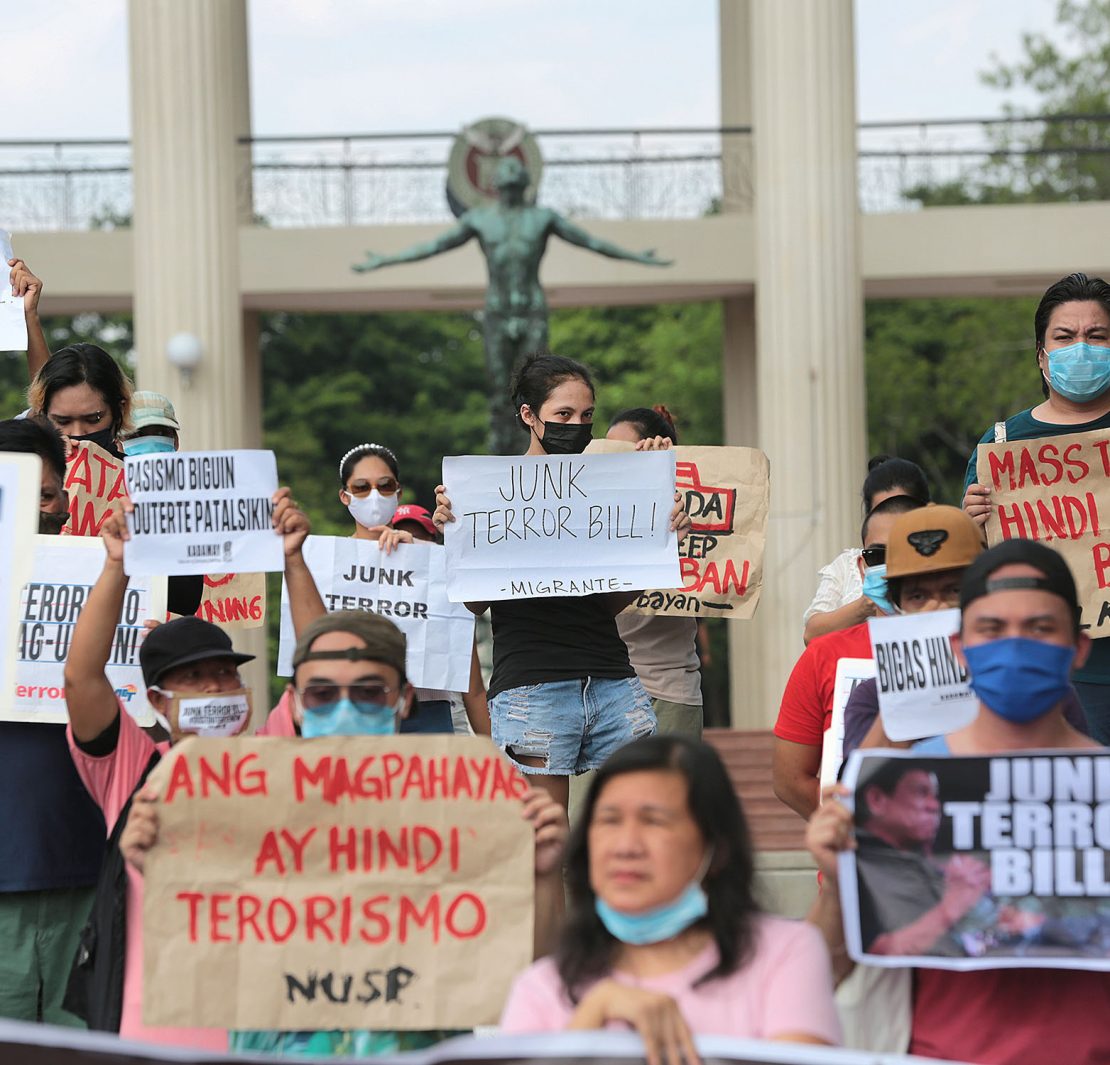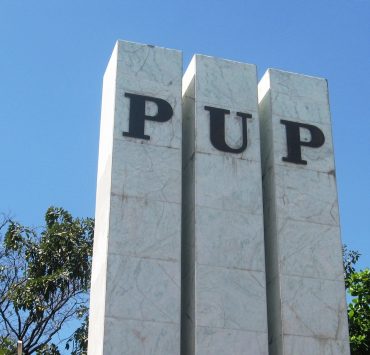Signed between then-University of the Philippines president Jose Abueva and then-Department of National Defense (DND) Secretary Fidel Ramos, the 1989 UP-DND accord established guidelines on military and police operations inside the university.
Under this agreement, military and police personnel are required to notify school officials before conducting operations inside UP’s campuses, and are barred from interfering with peaceful protest actions conducted by the students.
The agreement has been in place for over 30 years—until Jan.18, when the DND unilaterally terminated it.
JUST IN: DND has unilaterally terminated the UP-DND accord of 1989 in a supposed bid to carry out its mandate of protecting UP students from the CPP/NPA. | @krixiasINQ pic.twitter.com/ue3olnLNJr
— Inquirer (@inquirerdotnet) January 18, 2021
In a letter to UP President Danilo Concepcion, Defense Secretary Delfin Lorenzana said that the agreement was being used to prevent government operations against communist rebels who, he claimed—without offering evidence—were recruiting students to the underground movement.
The termination was not meant to “suppress activist groups, academic freedom and freedom of expression,” Lorenzana added. But can we really make sure of that?
If anything, this will lead to more red-tagging by the government
Here’s the thing: Our government has had a history of red-tagging individuals and organizations for expressing dissent and disagreement to its policies that have resulted in rights violations, among them the shutdown of media outlets and the warrantless arrest of individuals.
In the past year alone, UP students and faculty have been the subject of red-tagging from the government, with President Rodrigo Duterte threatening to defund the university after student calls for an academic freeze in November. He also described the campus as a fertile recruitment ground for communists.
Lorenzana echoed this line when he explained his decision to terminate the agreement. The university, he said, has become “the breeding ground of intransigent individuals and groups whose extremist beliefs have inveigled students to join their ranks to fight against the government.”
By terminating the UP-DND Accord on these grounds, the government instills mistrust of the state university and its students. The claims also expose its community to even more suspicion and surveillance by the state.
With the Anti-Terrorism Law in place, the presence of police and military forces inside campuses can only lead to more frequent use of deadly force against people who speak up against government abuses, with them being labeled terrorists by the state.
[READ: Terrorism undefined: The Anti-Terrorism Bill is an indication of an authoritarian regime]What happens to our safe spaces now?
The move to terminate the UP-DND accord doesn’t just affect the UP community; it’s a blow to our right to assemble and protest against government wrongdoing.
UP has long been seen as a safe space for dissent and protest—especially at a time when the government has taken steps to silence dissent through illegal arrests and crackdown on activists. Throughout the pandemic, UP’s campuses have been rallying points for assemblies against abusive government policies and rising corruption in the country.
[READ: In photos: Groups “celebrate” Independence Day at the “Grand Mañanita” protest in UPD]LOOK: Protesters during the “Grand Mañanita” rally at the University of the Philippines Diliman University Avenue on Independence Day to show objection to the controversial anti-terror bill. | 📷 Noy Morcoso, https://t.co/EDjVS4HOwc pic.twitter.com/yrbFmjXTlt
— Inquirer (@inquirerdotnet) June 12, 2020
The move to scrap the UP-DND accord takes away yet another safe space for protesters—especially now that more people are speaking up about the move to open our economy to foreigners through constitutional reforms as well as 2022 election-related issues, like manual counting.
Beyond just taking away a safe space for protest and dissent, terminating the UP-DND accord leaves other academic institutions more vulnerable to having the rights of their communities disregarded by the state. If the government can junk a safety provision without consulting the constituents it supposedly protects, what else can it do to more vulnerable institutions?
While Lorenzana claims that the termination of the UP-DND accord was done to safeguard the students, Concepcion notes that the government has yet to specify what will be put in place of the protections afforded by the agreement.
Vice President Leni Robredo meanwhile raised what seems to be apparent: Terminating the UP-DND accord is a move that won’t result in protection from the military, it’s a move meant “to silence dissent and sow fear.”
Vice President Leni Robredo slammed the Department of National Defense’s move to unilaterally terminate the 1989 agreement with the UP which she said was meant to “sow fear” and “silence criticism.” https://t.co/1eAmrZPb8a pic.twitter.com/HHHWxXYi2z
— Inquirer (@inquirerdotnet) January 19, 2021
With this move, don’t expect to see police forces protecting our students. Instead, expect more cases like the Pride March and UP Cebu—peaceful protests that have been met by police intervention and arrests.




